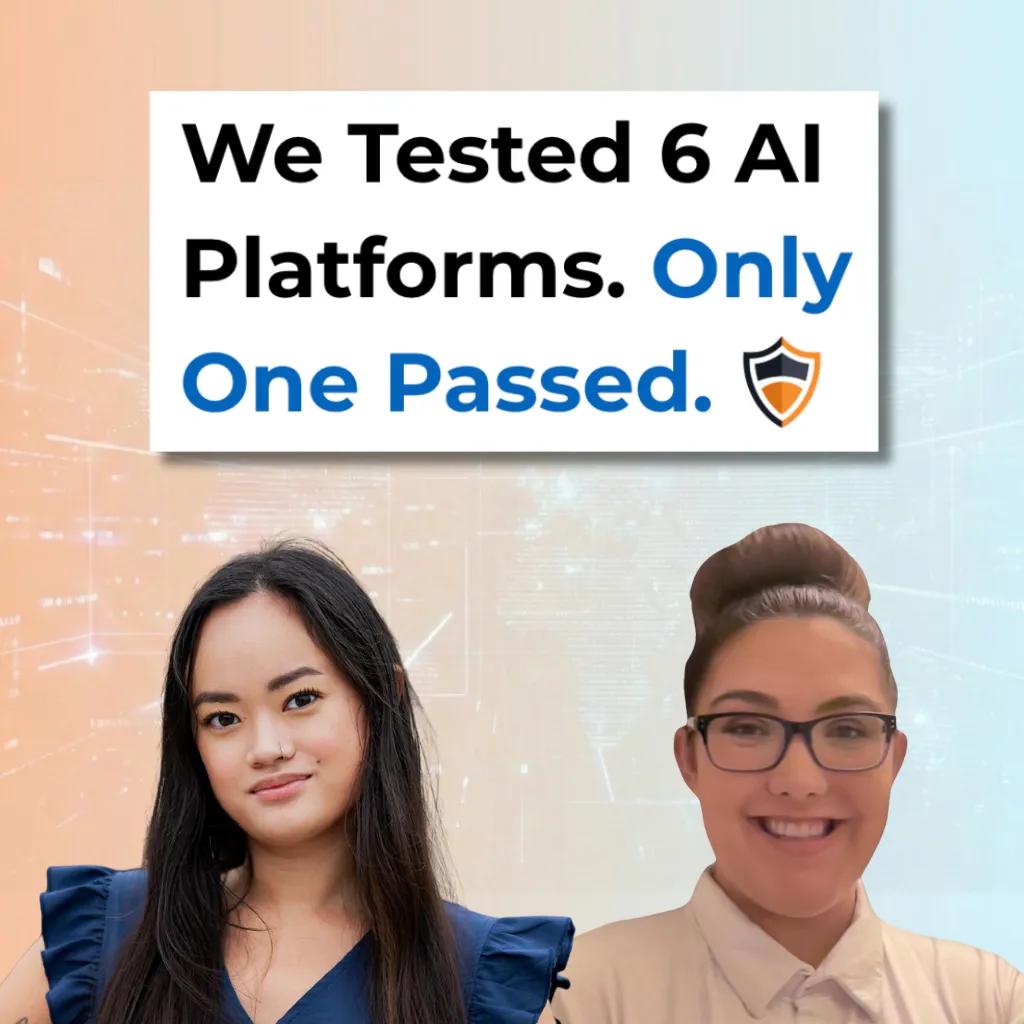Durable Medical Equipment (DME) companies are increasingly using Generative AI to increase efficiency and improve the quality of their work. However, generic AI tools like public ChatGPT are not HIPAA-compliant and cannot be used with PHI. This is where BastionGPT comes in. BastionGPT is a HIPAA-compliant, private version of ChatGPT and many other leading edge AI models that are engineered for healthcare settings. It runs in a secure, isolated environment that meets strict regulatory requirements, allowing DME companies to leverage generative AI on sensitive patient and billing data safely. In the sections below, we explore practical use cases for generative AI assistants like BastionGPT across DME operations. Each example highlights how AI can enhance efficiency, reduce costs, and support compliance in daily workflows.
Streamlining Documentation and Recordkeeping
DME staff spend considerable time on documentation – from patient intake forms and physician order transcriptions to compliance reports. Generative AI can assist in creating accurate documentation, freeing employees from tedious typing. For instance:
- Automated Transcription & Note-Taking: BastionGPT can listen to voice dictations or phone calls and convert them into written notes or visit summaries. This reduces manual data entry for staff. Our natural language processing (NLP) models now achieve high accuracy in transcribing medical terminology. This means a delivery technician or clinician can dictate equipment setup notes, and BastionGPT will generate a structured record with minimal errors.
- Drafting Medical Necessity Letters & Forms: DME companies often need to compile letters of medical necessity, prior authorization requests, or other insurance forms based on patient records. BastionGPT can quickly generate a first draft of these documents using the patient’s PHI and the relevant insurance criteria, which staff can then review. This not only saves time but also helps include all required details. Generative models can analyze medical records and suggest appropriate codes or phrasing for such documentation, reducing the chance of omissions.
- Summarizing and Organizing Records: When dealing with lengthy physician notes or hospital discharge summaries that justify a DME item, BastionGPT can summarize the key points (diagnoses, functional limitations, etc.) for internal use. It can highlight the information from an EHR that supports equipment qualification, making it easier for staff to build a compliant case file. By identifying missing information or inconsistencies in documentation, AI tools help prevent avoidable errors before they cause issues. This means staff might get a prompt if a physician’s order is missing a required element or if a rental agreement lacks a required field, for example. This helps speed up paperwork while minimizing human errors that could lead to billing mistakes or compliance gaps.
Enhancing Internal Communication and Knowledge Sharing
BastionGPT can also improve day-to-day communication and information access within a DME company. Many DME teams juggle communications between departments (sales, warehouse, billing, etc.), and have extensive internal knowledge bases (policy manuals, product catalogs, insurance guidelines). AI assistants can make these interactions and knowledge retrieval more efficient:
- Email and Memo Drafting: Routine internal communications – such as writing emails, drafting policy updates, or composing meeting minutes – can be offloaded to an AI for a first draft. For example, a manager could ask BastionGPT to “Draft an email to the respiratory therapy team about the new oxygen concentrator maintenance protocol”. The AI will produce a clear, professional email in seconds, which the manager can tweak and send. This ensures consistency in tone and frees up time for more critical thinking tasks.
- Meeting Summaries and Action Items: Integrating BastionGPT into meetings (virtual or in-person) allows it to transcribe and summarize key discussion points. After an operations meeting or a compliance review session, BastionGPT could generate a summary highlighting decisions made and action items assigned. Team members who couldn’t attend get a concise brief, helping to ensure nothing falls through the cracks.
- Internal Knowledge Base Q&A: BastionGPT can be provided your company’s documents and SOPs. Instead of sifting through dense binders or SharePoint folders, employees can ask natural language questions and get instant answers. Picture this: A staff member needs to know the Medicare requirements for a power wheelchair rental. Rather than search multiple PDFs, they query the AI assistant. Because it can be loaded with coverage criteria and past approval examples, it can instantly respond with the Medicare requirements and key considerations. In this way, our healthcare AI turns the labyrinth of internal knowledge into a quick conversational lookup tool. This not only saves time (studies show employees often spend significant portions of their day searching for information) but also ensures staff use the most up-to-date and consistent information. Over time, this kind of AI-driven knowledge sharing boosts productivity and confidence – new hires ramp up faster and even veteran employees benefit from instant cross-checks (e.g. asking “What’s our company policy on emergency equipment replacement?” and getting an answer citing the relevant policy section).
Billing and Claims Management Automation
Billing and insurance claims processing are core operations for DME providers – and ones rife with complexity and paperwork. BastionGPT, especially when combined with a DME’s billing data and payer rules, can greatly streamline the revenue cycle. BastionGPT can serve as a tireless billing assistant, handling everything from suggesting possible code assignment to drafting appeal letters:
- AI in Revenue Cycle Management: One immediate use case is AI-assisted coding and claim preparation. BastionGPT can assist with DME billing, translating medical orders and documentation into billing codes (HCPCS, ICD-10, etc.) and helping to ensure each claim has all required info. BastionGPT’s powerful AI models excel at pattern recognition in text and can suggest appropriate billing codes from descriptions. In practice, this means after reviewing a doctor’s order and patient condition, the AI might propose the correct HCPCS code for a hospital bed rental along with any necessary modifiers. This helps reduce coding errors and ensure accurate billing. Such consistency is crucial, as even minor coding mistakes can lead to denials or delayed reimbursement. Generative AI can also “scrub” claims for errors or omissions before submission. It will analyze the claim details and documentation, flagging missing elements (e.g. lack of a chart note to support the diagnosis) or likely mistakes, so staff can fix them proactively. This kind of AI-driven claim validation within BastionGPT increases first-pass acceptance rates.
- Appeals and Prior Authorization Management: Beyond initial submission, BastionGPT proves invaluable when claims are denied or require additional info. Drafting appeal letters and prior authorization requests is a natural language task that BastionGPT can handle quickly. Rather than writing an appeal from scratch, a billing specialist can ask the AI to generate a letter to the insurer explaining why a particular claim (e.g. a custom wheelchair) meets coverage criteria, referencing the patient’s medical history and the payer’s policy. Indeed, early adopters report that generative AI is already being used to produce appeal letters for claim denials. This not only saves time, but often results in well-structured, thorough letters that cite the correct rules – increasing the chance of a successful appeal. Similarly, for prior authorizations, the AI can assemble the requisite info (diagnoses, physician notes, etc.) into a concise narrative justifying the equipment need, which staff can review then submit to insurers.
- Patient Billing Communications: Generative AI can assist with patient follow up. For example, if a patient has a co-pay or needs to be billed after insurance, BastionGPT can draft a clear, empathetic billing statement or payment plan letter for the staff to review and send. All told, integrating generative AI into billing and claims workflows can significantly reduce administrative burden, lower denial rates, and speed up reimbursement, which is a major competitive advantage for DME executives.
Ensuring Compliance and Reducing Risk
Compliance in the DME industry spans HIPAA privacy, billing regulations (Medicare, Medicaid, private payer rules), and even anti-fraud laws. BastionGPT can act as an assistant to help DME companies stay compliant and avoid costly pitfalls. Importantly, because BastionGPT is built with healthcare data security in mind, it can be trusted to handle compliance-related data without leaking sensitive information to OpenAI (ChatGPT) or similar AI companies for their AI training.
- PHI De-identification and Anonymization: BastionGPT’s healthcare generative AI can be tasked with removing or anonymizing PHI in documents when needed. Suppose the compliance team wants to use a real case as a training example – they could ask the AI to generate a version of the document with all names and other HIPAA-identifiers changed, redacted or removed. BastionGPT, having the ability to process PHI, can do this internally while ensuring no sensitive data is exposed externally.
- Regulatory Update Summarization and Policy Generation: DME providers must keep up with frequent changes in healthcare regulations (e.g. CMS updates to DME fee schedules, documentation requirements, or new state laws). Generative AI can help by quickly summarizing lengthy regulatory documents into key takeaways. A compliance officer could feed in a new 30-page Medicare bulletin and get back a one-page summary of what changed and what actions the company needs to take. This allows faster response and ensures nothing important is missed in interpretation. The AI can even draft updated internal policies or checklists based on that new regulation. For instance, if Medicare introduces a new prior authorization rule for power wheelchairs, BastionGPT could draft an internal memo or policy document outlining the steps staff must follow, referencing the official guidelines. The compliance team can then fine-tune this draft, saving considerable writing time.
- Audit Preparation and Documentation Consistency: BastionGPT also supports audit preparation and documentation consistency. Since DME companies are subject to audits from payers and accreditation bodies, BastionGPT could review a batch of patient files and generate a report on whether each file has the required documents (prescription, face-to-face exam note, delivery proof, etc.). By comparing against a predefined checklist, the AI can quickly highlight files that are possibly non-compliant or missing elements, allowing staff to correct them before an external audit occurs. This proactive approach helps avoid penalties.
Supporting Staff Training and Onboarding
Training new staff and keeping existing employees updated is an ongoing effort in any DME company. Generative AI can lighten this load by providing on-demand training assistance, personalized learning content, and even simulated scenarios. By integrating generative AI into training and development, DME companies can reduce the costs and time of training, ensure staff are more uniformly knowledgeable, and foster a culture of continuous learning. New hires get up to speed faster, and existing staff stay sharp on the latest procedures – all of which translates to better operational performance and compliance.
- AI Mentoring for New Hires: One practical application is using an AI assistant as a 24/7 mentor for new hires (being careful given all generative AI technologies are capable of making errors). During onboarding, a new employee can ask the AI questions anytime, such as “How do I process a Medicare claim for a wheelchair?” or “What are the steps for equipment delivery setup?” using saved prompts that contain the company’s procedures and manuals, can provide step-by-step guidance instantly. This reduces the need for senior staff to constantly shadow or answer repetitive questions, allowing new employees to learn at their own pace with company information and industry best practices. It also ensures consistency in training — everyone gets information from authoritative sources such as company policy and SOPs.
- Customized Training Materials and Scenarios: BastionGPT can also create training materials quickly. Instead of writing slides or documents from scratch, trainers can leverage our AI to generate drafts. For example, an internal educator could prompt the AI: “Create a summary of safety guidelines for operating home oxygen equipment for our training handbook”. The AI would produce a well-structured summary covering key points (fire safety, storing tanks, checking alarms, etc.), which the educator can then refine. If your DME company needs to train staff on a new software or process, our health AI can generate example datasets or practice exercises. Notably, BastionGPT can help produce realistic yet anonymized patient scenarios for training purposes. Using generative techniques, it’s possible to create synthetic patient profiles and documents that mimic real cases without exposing actual PHI. Trainees could practice tasks (like verifying an order meets coverage criteria or responding to a customer inquiry) using these lifelike scenarios. This hands-on practice is far more engaging and effective than abstract examples, and because the data is fake but realistic, there are no privacy concerns.
- Personalized Learning and Interactive Education: BastionGPT can adapt to different learning needs, effectively enabling personalized education. If a staff member is struggling with, say, understanding complex insurance rules, they could have the AI explain it in simpler terms or even quiz them in a friendly manner. BastionGPT could simulate a Q&A where it acts as a “tester,” asking the trainee how they’d handle certain billing situations and then giving feedback or corrections. Such interactive learning reinforces knowledge and builds confidence. Generative AI like BastionGPT is frequently being used to simulate training scenarios in healthcare that prepare staff for real-world situations – for DME, this might include handling an angry customer call or navigating a sudden recall of equipment, all via role-play with our artificial intelligence.
- Continuous Education and Policy Updates:Policies and best practices evolve; AI can keep track of updates and proactively educate the team. For instance, if a new insurance requirement comes out, the AI could automatically produce a brief e-learning module or an internal newsletter article explaining the change and even quiz staff on it. It essentially helps in creating a self-updating training program.
Conclusion
From the back office to the warehouse, BastionGPT is poised to transform your DME operations. The use cases highlighted – documentation drafting, internal communications, billing automation, compliance monitoring, and staff training – demonstrate that many relatively simple, routine workflows can quickly be improved with AI assistance. Importantly, these enhancements directly contribute to the metrics that matter for operations managers and executives: greater efficiency, lower error rates, reduced costs, and stronger compliance. By offloading tedious tasks to BastionGPT, employees can focus on higher-value activities such as patient service improvement, business growth, and proactive quality control.
With BastionGPT, DME organizations can confidently integrate AI into workflows that involve PHI/PII, knowing that patient data remains protected. This opens the door to leveraging AI in ways that were not possible with consumer chatbot subscriptions like ChatGPT, Gemini or Claude. Including your organization’s specific data and guidelines in saved prompts will make its outputs more accurate and contextually relevant. Having humans in the loop (for oversight and final approvals) ensures that AI remains an aid, not a sole decision-maker.
Generative AI has now moved beyond hype to offer tangible, practical benefits for DME companies. By embracing these use cases, and many more that will be discovered by your use, DME providers can streamline their operations while maintaining the high standards of accuracy and compliance that the healthcare environment demands. The result is a leaner, more responsive organization that can ultimately deliver better service to patients and partners. For DME executives planning the next steps in digital transformation, deploying BastionGPT’s HIPAA-compliant AI assistant is a strategic move – one that can reinforce everything from day-to-day productivity to long-term competitive advantage in the evolving healthcare landscape.
Most organizations are able to sign up and begin using BastionGPT within 10 minutes, with no setup costs, 7-day trial and no fixed commitments. Begin your AI journey with BastionGPT today by starting your trial here: https://bastiongpt.com/plus .
If you have more questions or would like to connect – you can reach out at:
- Email: [email protected]
- Phone: (214) 444-8445
- Schedule a Chat: Book a Meeting




.png)
.png)